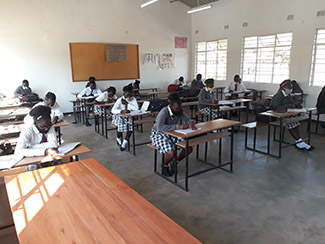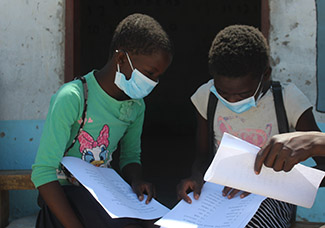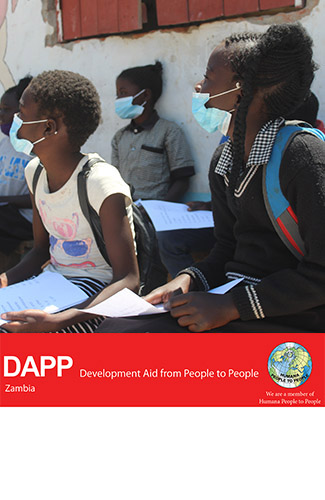consent_cookie
Duración: 1 year
Stores the user's cookie consent state
21-09-2020
The Children's Town program promoted by DAPP-Zambia -a local Humana partner- in Chibombo has been strengthened in recent months, in order to adapt to the new reality of the pandemic and continue to promote the training of the students who are part of it. from school.
Immediately after the start of the coronavirus pandemic, the school formed a work team made up of six teachers. Its objective is to lead and manage all preventive measures in order to try to stop any source of contagion within the school community.
The general preventive measures taken in the first instance were the following:
In addition, different measures were taken in the academic environment and in the living conditions, taking into account that the school reopened in the first instance for the seventh and ninth grade exams:
Distance training program
Before the temporary suspension of classes, the students who left the center took home enough scheduled work to continue studying. However, mobility restrictions set by the government prevented teachers from monitoring student progress: most communities do not have internet access, so in any case teachers would have to have traveled to each village to do a personalized follow-up. Something that was not possible.
The center then launched the so-called DAPP Children’s Town Outreach Learning Program, designed so that students who do not have a grade exam this year could continue with the educational program. This program includes 397 students from preschool to sixth grade, divided into four large groups, each of which has its own meeting point. Geoffrey Ndiwa, one of the people in charge of Children’s Town, explains that “the idea of the program is to try to keep the students up to date with the academic program. As we are not allowed to teach in person, our task is to give them assignments to carry out for a week, at home, and then bring them back for us to grade. '
The tasks are accompanied by instructions and comments for their completion. Students perform the exercises in groups of three. This collaborative approach allows struggling students to have the support of their peers to move forward. The fathers and mothers themselves have been involved as much as possible in monitoring the tasks.
New training methods and solutions
The program has provided teachers with the experience of developing various teaching methods not included in the practical training they received before becoming teachers. In the initial stage of the pandemic, they went door-to-door sensitizing families about COVID 19 and informing about the distance education program. The support they received from the communities was overwhelming.
“We now teach in open spaces. At first we were a bit uncomfortable, but now, with experience, it seems natural. Our colleagues from other schools used to say to us, "Why should a teacher follow a student to her community?" Now we understand our own students better. An example: we have discovered why some students are late for school; because every day they bike or walk long distances from home to get to Childrens Town, ”explains Ndiwa.
With this method it has been achieved that the students are up to date with the programs of the different subjects when the schools return to function in a completely normal way. In addition, it has improved the already good relationship between the school and the communities.


